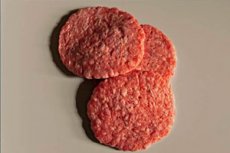
Ultra-processed foods (UPF) may be linked to insomnia, which affects about a third of adults. An analysis of dietary and sleep habits published in the Journal of the Academy of Nutrition and Dietetics shows a statistically significant association between UPF intake and chronic insomnia, regardless of sociodemographic, lifestyle, nutritional quality and mental health.
Principal investigator Marie-Pierre St. Onge, Ph.D., of the Division of General Medicine and Center of Excellence in Sleep and Circadian Research, Columbia University Department of Medicine, explains: “At a time when more and more highly processed foods are being disrupted, sleep patterns are becoming ubiquitous, it is important to evaluate whether diet may contribute to worse or better sleep quality."
Although previous studies have examined the effects of nutrients or dietary supplements on sleep (eg, protein, magnesium), this study is groundbreaking because it evaluates dietary patterns beyond nutrients and specific foods and shows that the degree to which foods are processed may have implications for sleep health.
Dr. St. Onge adds: “Our research group has previously reported the association of healthy dietary patterns, such as the Mediterranean diet, with a reduced risk of insomnia and poor sleep quality (in both cross-sectional and longitudinal studies), and about the connection of high-carbohydrate diets with an increased risk of insomnia. UPF consumption is increasing worldwide and is associated with numerous diseases such as diabetes, obesity and cancer."
To examine the association of dietary intake with sleep, this large epidemiological study used NutriNet-Santé data from more than 39,000 French adults. This large cohort study was ideally suited to address this question given the inclusion of sleep variables and multiple days of detailed dietary information.
Data was collected every six months between 2013 and 2015 from adults who completed multiple 24-hour dietary reports and provided information on insomnia symptoms. The definition of insomnia was based on DSM-5 and ICSD-3 criteria.
Participants reported consuming approximately 16% of their energy from UPF, and approximately 20% reported chronic insomnia. Individuals who reported chronic insomnia consumed a higher percentage of their energy from UPF. The association between high UPF intake and insomnia was evident in both men and women, but the risk was slightly higher in men than in women.
First author Pauline Ducquen, MSc, from the University of Paris Nord-Sorbonne and the University of Paris, INSERM, INRAE, CNAM, Research Team on Nutritional Epidemiology (EREN), Center for Research in Epidemiology and Statistics (CRESS), warns: "Important Note that our analyzes were cross-sectional and observational in nature, and we did not evaluate longitudinal associations. Although the data do not establish causality, our study is the first of its kind and contributes to the existing knowledge base on UPF."
Other limitations of the study include reliance on self-report data and possible misclassification of some foods. Caution should be exercised when generalizing the results as NutriNet-Santé includes a higher proportion of women and those with high socioeconomic status compared to the general French population, although UPF intake was similar to the nationally representative sample.
The researchers recommend that future studies test causality and evaluate associations over time. However, they advise individuals with sleep difficulties to review their diet to determine whether UPF may be contributing to their sleep problems.

